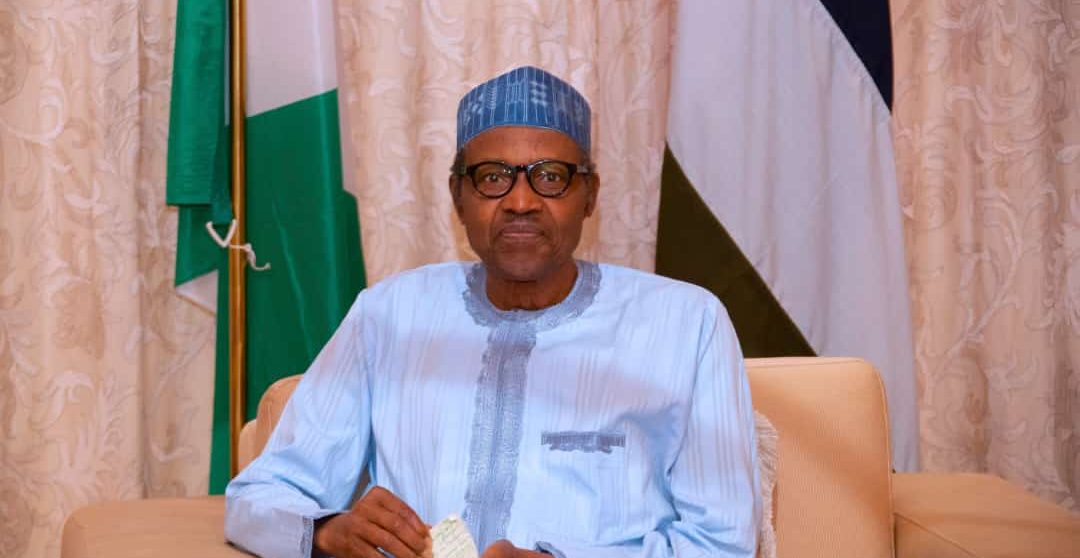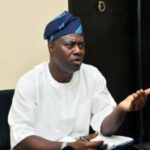President Muhammadu Buhari on Monday directed that the first phased and gradual easing of the lockdown be sustained for another two weeks.
Among others, the easing measures were curfew and ban on inter-state travel except for essential services and transportation of food commodities.
Also, the president directed that the total closure of Kano, the business hub of the North and the most populous state should be sustained for the next two weeks.
Secretary to the Government of the Federation (SGF) and Chairman of the Presidential Task Force (PTF) on COVID-19, Mr. Boss Mustapha, announced this during Monday’s press briefing by the task force.
Recall that the president had on April 27, announced a “phased and gradual easing” of the lockdown in the Federal Capital Territory (FCT), Lagos and Ogun states, while declaring a nationwide curfew with effect from May 4, and a ban on all inter-state movements across the 36 states of the federation.
Grave danger
The SGF explained that the president’s decision was informed by the realisation of the fact that any further relaxation of measures adopted to contain the spread of COVID-19 would mean grave danger for the nation.
Mustapha, who took a cursory review of the last two weeks when the current measures were instituted, observed that despite the efforts made so far, Nigeria was not ripe yet for a full opening of the economy, adding that all necessary sacrifices must be made in the interest of Nigerians.
Justifying the extensions, the SGF said, “The PTF considers it important to let you know that it has relied largely on science, statistics, lessons learnt from other parts of the world and an evaluation of our peculiar circumstances to draw its conclusions on the outcome of the last two weeks.
“For example, our surveillance, infection prevention and control activities identified nine high burden local government areas in the federation reporting high number of cases and accounting for 51 per cent of the total number of infections in the country.
“We have also seen that though Nigeria’s caseload still lags behind several other countries, our large population and relatively high degree of mobility and urbanisation (50 per cent) places us at an increased risk for high transmissibility. Therefore, our consideration of ease of restrictions has to balance lives and livelihoods and the slow and gradual phased approach should be science and data driven,” he said.
Increase in confirmed cases
Daily Trust reports that as of May 4, when the federal government eased the lockdown, Nigeria had 2, 802 confirmed cases of COVID -19 in 34 states and the FCT; while 417 persons had been discharged and 93 deaths recorded.
However, as of Monday evening, Nigeria had recorded 5, 959 confirmed cases, 1, 594 discharged cases and 182 deaths.
This translates to a 47% increase in the number of confirmed cases within two weeks.
The country also recorded its highest number of daily cases on Sunday evening with 338 new confirmed cases. From Friday to Sunday, the country recorded 797 new confirmed cases of COVID-19.
What the extension entails
Boss Mustapha said President Buhari had ordered that the current level of eased lockdown should be repeated from midnight of Monday, May 18 to June 1, 2020, saying this would include the 8pm to 6am nationwide curfew that had since been in force.
According to Mustapha, “Advisedly, the current phase of eased restriction will be maintained for another two weeks during which stricter enforcement and persuasion measures will be pursued.
“The two weeks extension of phase one of the eased restriction is also to enable other segments of the economy to prepare adequately for compliance with the guidelines, preparatory to reopening in the coming weeks.
What the President ordered
Among other things, he said President Buhari has approved the following:
(i) The measures, exemptions, advisories, and scope of entities allowed to reopen under phase one of the eased locked down, shall be maintained across the federation for another two weeks effective from 12 00 midnight today (18th May, 2020 to 1st June, 2020);
(ii) Intensifying efforts to ‘tell (communicate), trace (identify) and treat (manage)’ cases;
(iii) Elevating the level of community ownership of non-pharmaceutical interventions;
(iv) Maintaining the existing lockdown order in Kano for an additional two weeks;
(v) Imposition of precision lockdown in states, or in metropolitan/high-burden LGAs, that are reporting a rapidly increasing number of cases, when the need arises. This would be complemented with the provision of palliatives and continued re-evaluation of the impact of the interventions; and
(vi) Aggressive scale-up of efforts to ensure that communities are informed, engaged and participating in the response with enhanced public awareness in high-risk states.
Kano lockdown extended
The SGF also said President Buhari has extended the lockdown in Kano State by two weeks.
Our correspondents report that while easing the lockdown of the FCT, Lagos and Ogun states, the president announced the total closure of Kano with effect from May 4.
The state had within few weeks recorded spike in COVID-19 cases including deaths from other ailments, a development that featured the state prominently in the map of seriously exposed locations in the country.
But like many states, Kano had been implementing two days window (Mondays and Thursdays) for residents to restock food items and other necessities while markets for other goods and services remained under lock and key. Places of worship have also remained closed.
Though the state government was yet to comment on the new development as at the time of completing this report, some residents of Kano had spoken.
What the people say
Malam Isa Ibrahim, a small holder businessman at Abubakar Rimi Sabon Gari market, said the extension was a “deadly blow too many to my social class because we anticipated that government will have a human face in considering our plight in the past weeks and lift the lockdown.”
According to him, the lockdown had rendered many businessmen helpless adding that as good citizens, they would remain law abiding.
“Actually, we are disappointed with the extension because it means agony and more hardship for us,’ he said.
Another resident, Alhaji Saminu Surajo accused the state government of being indifferent to the citizen’s plight as it showed no concern in addressing their issues as they arose due to the lockdown.
Maryam Baballe said the extension was the most horrible news the state received this year.
She said residents thought they would be allowed to celebrate the Sallah festival, which they cherished and guarded with all they have. “We have endured beyond our capabilities, the authorities should kindly look into this matter and readdress it appropriately,” she added.
Not yet where we wish to be
The SGF said the inevitable conclusion of the taskforce is that the fight against COVID-19 will be for a long time as the virus is not likely to go away very soon.
He said this is further underscored by the fact that no vaccine is expected till around the end of 2021.
He added, “Nigeria is not where we wish to be in terms of control, ownership, infrastructure and change of behaviour. We must do more.”
While saying that the PTF last week hinted about the refocusing of its policy on community ownership, Mustapha said the government shall intensify the mobilisation of individuals, especially the communities to take ownership of this fight.
Security to ensure compliance
The SGF said that the level of compliance had been reviewed and a specific directive had been issued to the security agencies to carry out strict enforcement of all measures, including the nationwide curfew.
He said, “The security agents are however urged to be mindful of the human rights of citizens, while citizens are equally urged to recognise the dangers posed to self, their loved ones and the entire community if they fail to take responsibility.
“Let me state categorically, that the exemptions allowed under the phase one are still in place. Particularly, government remains conscious of the fact that we are in the rainy season and farming activities is critical to food and national security. It should therefore, not be hindered.
“I therefore urge states and security agencies to support, encourage and allow our farmers to carry out their activities,” he said.
Gains of task force
Mustapha said yesterday’s briefing was significant as it provided the PTF an opportunity to assess progress made in the first phase of their stated three-pronged strategy and communicate Mr. President’s directive on the next step of the national response to the COVID-19 pandemic.
He said the PTF also developed a multi-sectoral national response bearing in mind the fact that they were traversing uncharted territories and that there was no cure for the virus.
According to him, the president had so far addressed the nation three times to underscore the seriousness of the situation and that on each of those occasions, he pronounced measures aimed at containing and controlling the spread of the disease.
He said that while maintaining a delicate balance between safety and economic survival in a precarious situation, Mr. President focused on ensuring that socio-economic difficulties experienced during the total lockdown were alleviated without compromising safety.
“In recognition of the global impact of COVID-19 on economies and the need to stimulate and positively turn around our economy, the federal government has been implementing various stimulus packages offered to businesses and state governments through the CBN. These include: reduction of interest rates from nine percent to five percent for all CBN intervention facilities;
“Restructuring of loans to longer tenors for all companies whose businesses are adversely impacted by COVID-19; N50bn facilities to household and businesses adversely impacted by COVID-19 through NIRSAL Micro Finance Bank;
A better alternative
Dr. Audu Onyemocho, an epidemiologist and an associate professor of community medicine said rather than extending the lockdown, emphasis should be made on the need for people to adhere to safety measures including use of face masks, social distancing and washing of hands.
He said the extension of the lockdown might not produce the desired result as there was a long delay at the initial time saying most of the working class including public servants and private sector drivers were struggling for surviving.
Dr. Onyemocho who is also a member of the Benue COVID-19 Task Force and the Head of Department of Epidemiology and Community Health at the Benue State University Teaching Hospital, Makurdi, said since there were imported cases from other states, the inter-state lockdown could continue while intra-state lockdown eased.
He said developed countries including England and Spain where league matches were played were now concentrating more on easing rather than extending lockdowns and Nigeria should learn from them.

 Join Daily Trust WhatsApp Community For Quick Access To News and Happenings Around You.
Join Daily Trust WhatsApp Community For Quick Access To News and Happenings Around You.


